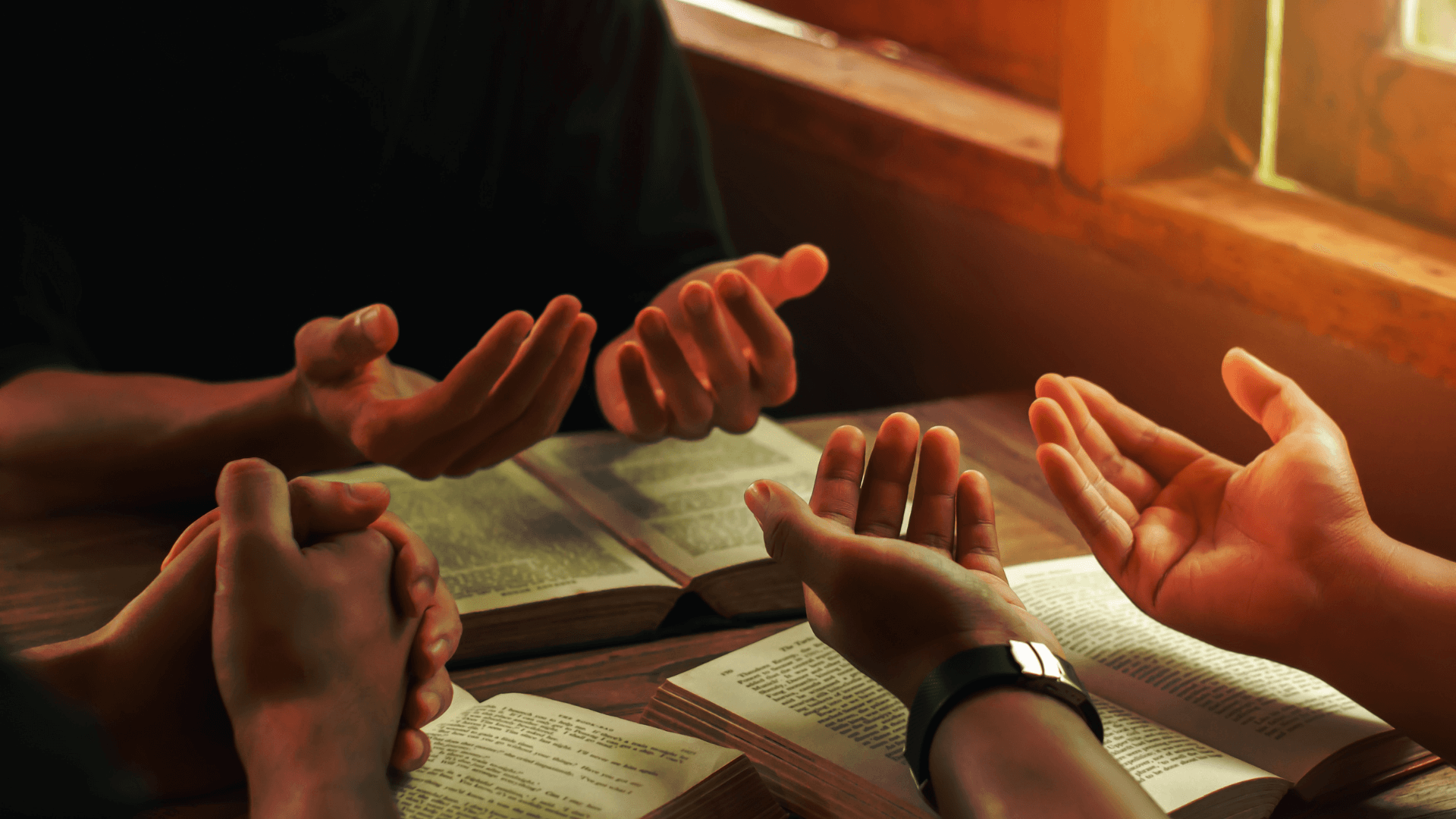“What would Jesus do?” That is one of the most significant questions I, as a believer, can ask.
I am an old man. I’ve made peace with that.
My memory may not be all that great, but I remember social upheavals before. I grew up in the 60’s. In that sense, much of what is happening around the horrific tragedy of George Floyd has a sick sense of history repeating itself.
Then there’s COVID-19. Hasn’t that been a joy?
In light of all this, I have returned to a bedrock question. What would Jesus do? And I’m asking that in the context of Mr. Floyd and all the myriad pieces that make up the days we are now in as Americans.
I am speaking for myself here and not in any other capacity. I am most certainly not trying to speak for Christ. He’s already done that. This is my personal reflection and nothing else.
What would Jesus do?
1. He would ask us to be peacemakers.
Matthew 5:9
Blessed are the peacemakers,
for they will be called children of God.
What a sublime calling. To think that God Himself in the person of Jesus Christ trusts us enough to be peacemakers and peace-bringers. That is a beatitudinal mandate. We are to bring peace, not strife. Not confusion. Peace.
2. He’d ask us to find a common good.
Matthew 18:19-20
“Again, truly I tell you that if two of you on earth agree about anything they ask for, it will be done for them by my Father in heaven. For where two or three gather in my name, there am I with them.”
The key word here is “agree.” I contend there are more things in life among believers that unite us than divide us. That common ground is “Jesus, and Him crucified.” Scripture teaches us that there can be no fellowship between darkness and light, and any agreement between the two is superficial at best. That is not me saying that we as believers can’t unite with non-believers against a common foe. God has routinely used wicked people for His own ends. He has done and is doing that now. There is a unique bond among believers that transcends anything else on earth, and that’s what we build on.
3. He would remain silent when appropriate.
Mark 14:60-61a
Then the high priest stood up before them and asked Jesus, “Are you not going to answer? What is this testimony that these men are bringing against you?” But Jesus remained silent and gave no answer.
Jesus does answer the high priest later in this passage, but at this point He chose not to reply. Sometimes being quiet is the best response ever – silence can be more eloquent than words. It’s a matter of being wise enough to know when there isn’t anything that should be said. Of course, it’s wise to listen if you’re being silent.
4. He would serve others.
Mark 10:43-45
Not so with you. Instead, whoever wants to become great among you must be your servant, and whoever wants to be first must be slave of all. For even the Son of Man did not come to be served, but to serve, and to give his life as a ransom for many.”
This means we’re to abandon our agendas if they are self-serving. You can’t neglect yourself, obviously. You can’t give away if you have nothing to give. I can assure you, there are plenty of people in much worse shape than you are, and you may be divinely positioned to come alongside them and give them supernatural aid.
5. He would acknowledge that all lives matter.
John 3:16-17
For God so loved the world that he gave his one and only Son, that whoever believes in him shall not perish but have eternal life. For God did not send his Son into the world to condemn the world, but to save the world through him.
The word translated “world” shows up four times in these two verses. I can’t think of a more universal, all-encompassing sentiment than the fact that God loved the world. Jesus also says “whoever.” I’ve seen folks raked over the proverbial coals for saying “all lives matter,” as if that were some sort of heretical statement. Jesus states that all lives matter. However, having said that … Let me share some scripture first, because it covers another three points:
John 4:4-11
Now he had to go through Samaria. So he came to a town in Samaria called Sychar, near the plot of ground Jacob had given to his son Joseph. Jacob’s well was there, and Jesus, tired as he was from the journey, sat down by the well. It was about noon.
When a Samaritan woman came to draw water, Jesus said to her, “Will you give me a drink?” (His disciples had gone into the town to buy food.)
The Samaritan woman said to him, “You are a Jew and I am a Samaritan woman. How can you ask me for a drink?” (For Jews do not associate with Samaritans.)
Jesus answered her, “If you knew the gift of God and who it is that asks you for a drink, you would have asked him and he would have given you living water.”
“Sir,” the woman said, “you have nothing to draw with and the well is deep. Where can you get this living water?
6. He would spend time with the one (or ones) most in need at a given point in time.
Here’s Jesus, and He simply sits down with this woman and listens to her story. He asks good, probing, non-threatening and non-accusatory questions. Were there other people within a fairly easy walk who had needs, too? Certainly there were. But at this point, in this place, Jesus went to the heart of this woman’s needs … and before He spoke with her, she didn’t even know what these needs were.
There’s this:
Matthew 18:12-14
“What do you think? If a man owns a hundred sheep, and one of them wanders away, will he not leave the ninety-nine on the hills and go to look for the one that wandered off? And if he finds it, truly I tell you, he is happier about that one sheep than about the ninety-nine that did not wander off. In the same way your Father in heaven is not willing that any of these little ones should perish.
I believe what Jesus is saying here is to simply go where the greatest need is. If the sheep owner had gotten back with the wayward sheep, and he realized another 25 had wandered away, he’d put the one sheep in the pen and strike out in search of the 25. Those outside the pen are at greater risk than those safely inside the pen. That’s all.
7. He would spend time in the place of greatest need.
Hearkening back to the Samaritan woman – it’s hard to tell from their dialogue how much time Jesus spent with her. We do know the disciples had gone into town to buy food. He could have gone with them and possibly had more ministry opportunities, as I mentioned. The point is that Jesus invested in this woman, one-on-one. While I won’t negate the value of speaking to large crowds, to have personal attention from someone who will listen to you is potentially life-changing. (As an aside, don’t stand off at a distance and holler at me. That will be a one-way conversation, because I won’t holler back.)
8. He would reach out to those who weren’t like Him.
Jews don’t associate with Samaritans. It was simply not done. Well, guess what. Jesus absolutely shattered that taboo. If you want to drill deeper, He shouldn’t have even been speaking to a woman, especially one by herself and out and about at this time of day.
9. He would express white-hot rage at sacrilege and blasphemy.
Mark 11:15-17
On reaching Jerusalem, Jesus entered the temple courts and began driving out those who were buying and selling there. He overturned the tables of the money changers and the benches of those selling doves, and would not allow anyone to carry merchandise through the temple courts. And as he taught them, he said, “Is it not written: ‘My house will be called a house of prayer for all nations’? But you have made it ‘a den of robbers.’”
Does Jesus get angry? You bet. This is the most physical demonstration of His anger in scripture. What brought this on? I’d suggest that this isn’t blind rage. It was purposeful, focused, and meaningful.
Ephesians 4:26-28
“In your anger do not sin”: Do not let the sun go down while you are still angry, and do not give the devil a foothold. Anyone who has been stealing must steal no longer, but must work, doing something useful with their own hands, that they may have something to share with those in need.
Certainly Jesus didn’t sin. The lesson is that we’d better get angry at sin, or else it’ll become way too attractive to us. We might find ourselves justifying anger in ourselves that is not of God. What a subtle satanic trap!
10. He would forgive His executioners whether they “deserved” it or asked for it or not.
Luke 23:33-34
When they came to the place called the Skull, they crucified him there, along with the criminals—one on his right, the other on his left. Jesus said, “Father, forgive them, for they do not know what they are doing.” And they divided up his clothes by casting lots.
Jesus forgave them. They didn’t ask for forgiveness. We don’t know if they received it and repented of their wickedness. But He forgave them anyway, with no apparent conditions attached.
Jesus would forgive Derek Chauvin. And Thomas Lane, Tou Thao and J. Alexander Kueng.
Read that again.
11. He would want us to experience peace and rest.
Matthew 11:28-30
“Come to me, all you who are weary and burdened, and I will give you rest. Take my yoke upon you and learn from me, for I am gentle and humble in heart, and you will find rest for your souls. For my yoke is easy and my burden is light.”
There’s a sweetness and comfort in these verses that resonate with me as much, if not more, than anything Jesus ever spoke.
Say these words aloud: “Weary.” “Burdened.” “Rest.” “Learn from me.” “Gentle.” “Humble.” “Easy.”
Those are words to quench a thirsting soul.
As I’ve watched this sordid tale of the death of George Floyd unfold, I have yearned for peace. For rest. Not only externally in the tumultuous world, but internally in my own soul. I’ve looked as best I can at “what would Jesus do?” So my points aren’t necessarily grounded in proper theology. I have followed my own imperfect heart. I’ve been afraid to speak up for fear of saying the wrong, offensive thing. I’ve remained silent when perhaps I shouldn’t have. I have been encouraged to listen – to listen with the goal of understanding. There are a lot of competing voices. Where I have settled is in trying to hear the voice of Jesus, and He tends to speak to me in whispers. And His whispers are infinitely louder than the noise around me.
Shhh. Listen. What would Jesus do? He will tell you.
Tony Asks: What is one thing you need to learn and act upon in these days? Please leave your comments below.
And I’d be grateful that, if you found value in this, share it with your friends.






